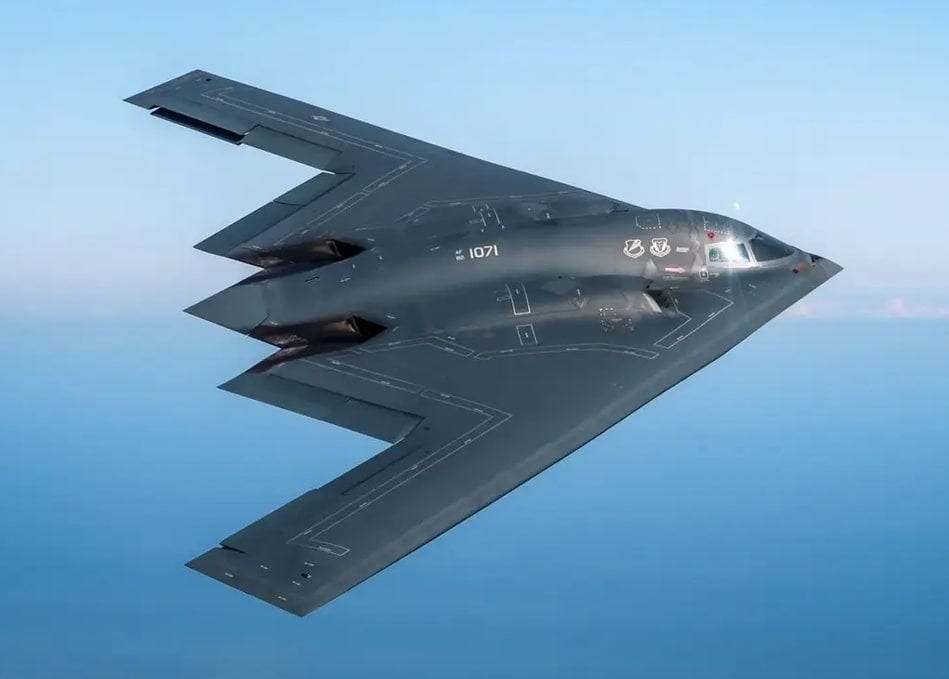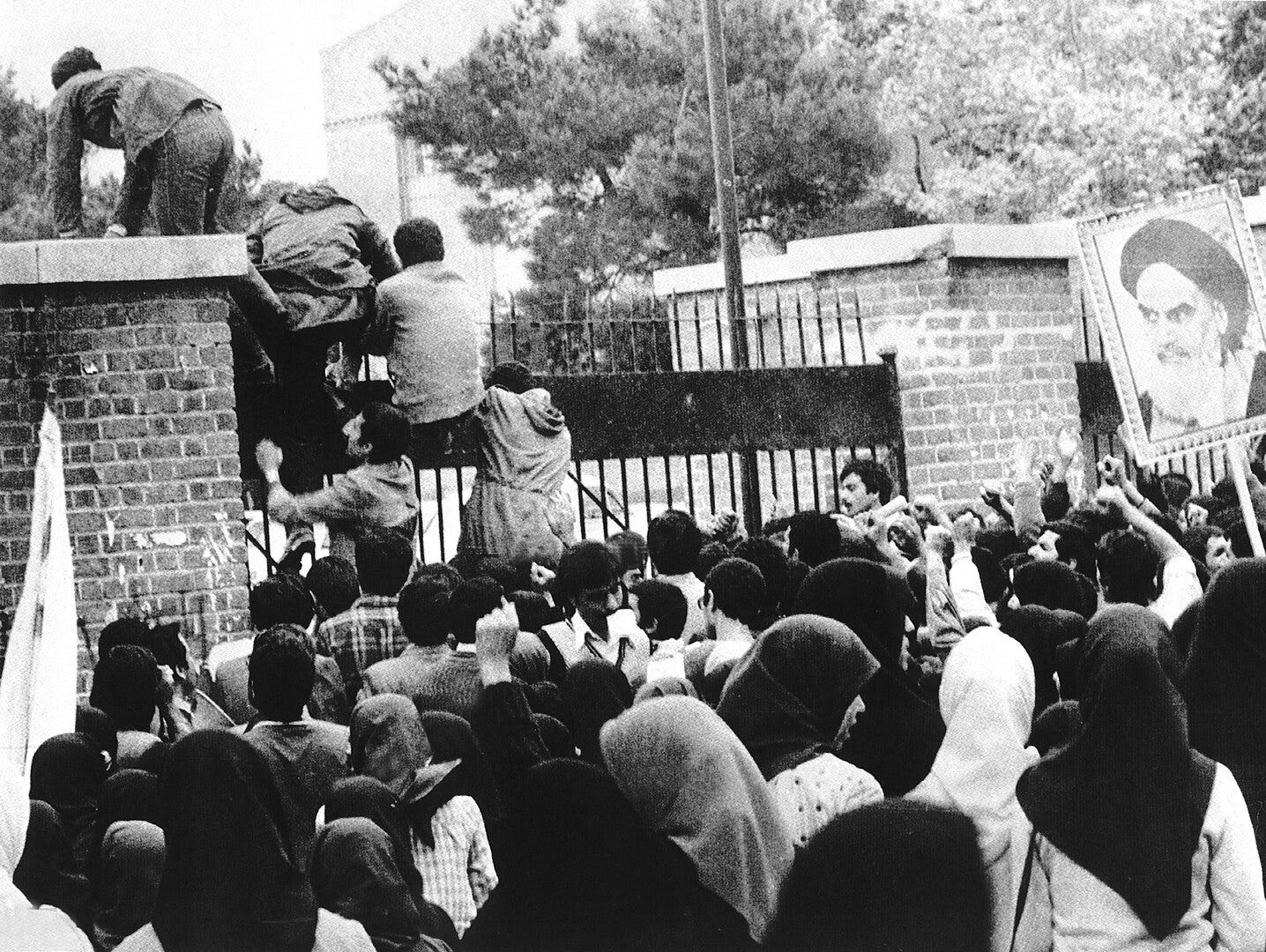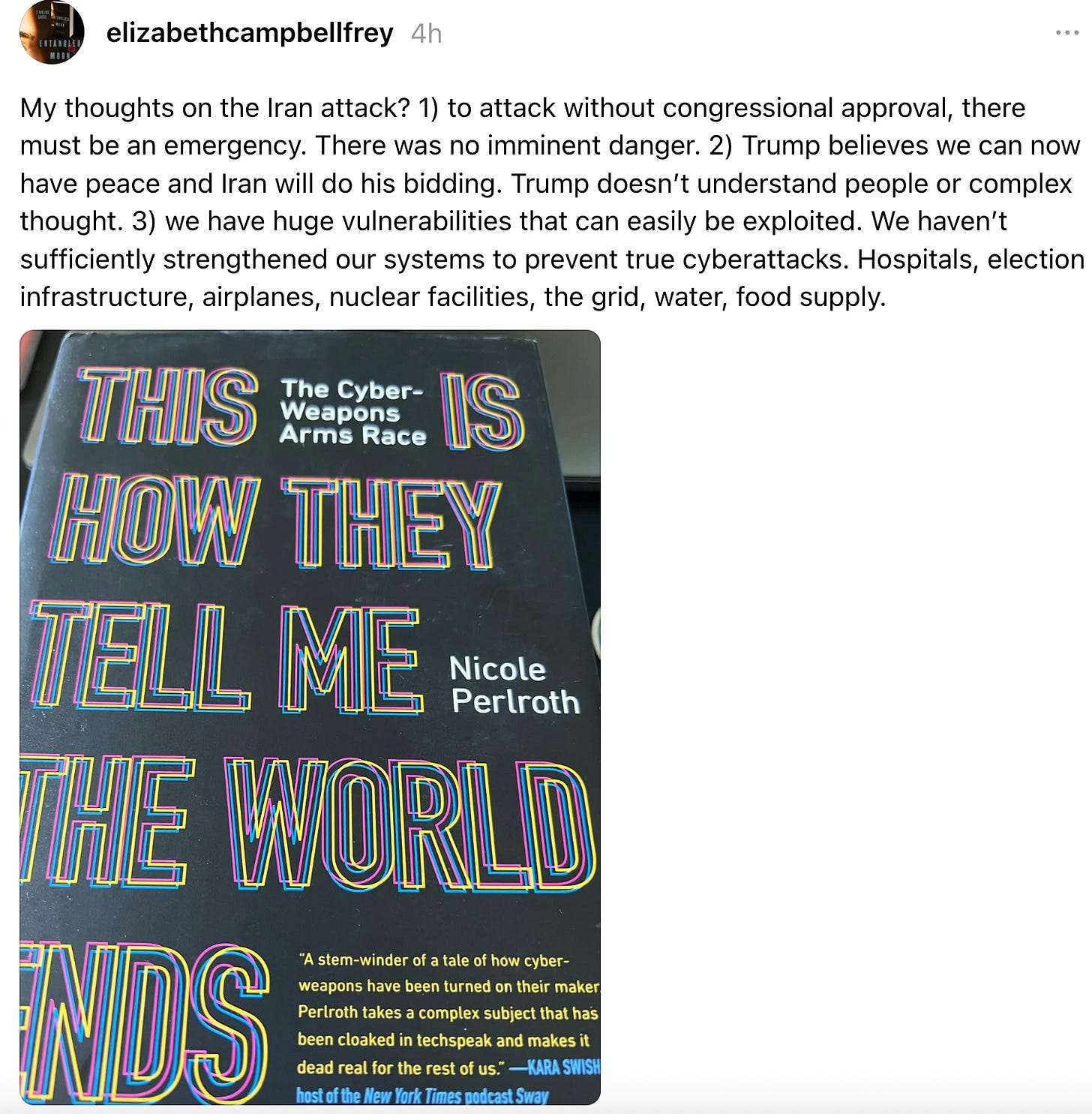If there was ever any confusion as to whether we are on a war footing, those doubts were dispelled last night when President Donald Trump ordered a devastating bombing strike against military targets in Iran, specifically its nuclear development facilities.
The strife between Israel and many of its Islamic neighbors is, of course, nothing new. After all, since its founding in 1949, the Jewish state has conducted mostly defensive military operations in neighboring states, including Lebanon, Syria, Egypt and Gaza.
On rare occasions, it has struck at more distant foes, as when, under cover of darkness, Israeli fighter jets mounted a brilliant sneak attack against a nuclear plant in Iraq in 1981, doing the world a favor by dealing a blow to that nation’s goal of developing a nuclear weapons program.
Unless you live in Shangri-La, you’re probably aware that Israel’s latest major military action is targeted at Iran, which in is also an old foe of the United States. In short, Israel is trying to destabilize the Islamic state, effect regime change and eliminate Iran’s nuclear program.

To that end, over the past few weeks, Israel staged a series of targeted attacks, decapitating the Iranian military by destroying much of its air defenses, killing several top generals and, using a top-secret “special weapon,” knocking off nine of Iran’s elite nuclear scientists as they slept in their beds. How do you run a war when your key strategists and technical brains are among the casualties, and when repelling Israeli air strikes is limited?
It goes without saying that the world would be a safer place if Iran never gets ahold of nuclear weapons. The tricky part for the U.S. is determining to what extent we should get involved. The U.S. had publicly acknowledged that it had battleships in the Mediterranean helping Israel shoot down incoming ballistic missiles. Until last night, America had avoided direct involvement in the war.

Israel would love to do what it did in Iraq and take out Iran’s most important nuclear development facility, but they did not have the weaponry to accomplish it because the key Iranian project is buried about a kilometer beneath a mountain outside of Teheran. Only the U.S. possesses so-called bunker-busting bombs that are theoretically capable of penetrating such depths. And even then, it’s not clear whether the bombing sorti would be effective. The Pentagon did not say whether nuclear facilities had been destroyed, opting instead for the vague language of inflicting “severe damage” to those targets. This suggests that they don’t yet know the precise extent of the destruction.
This was the key question facing Trump as he weighed whether or not to escalate the conflict by having the U.S. military engage directly in the dispute. After all, it’s one thing to order a U.S. Navy destroyer, from the safety of the Mediterranean, to knock down incoming Iranian missiles aimed at Israel, but quite another to command a B-2 to drop several of the most deadly non-nuclear bombs in existence on a sovereign nation that has not directly attacked us since seizing the United States Embassy in 1979 and holding dozens of Americans hostage for months on end.
Three other important points I’d like to make. First, from a strictly political standpoint, it has been fun to watch a schism develop among members of the Orange Rage Machine, to the extent that anything arising out of armed conflict can be considered joyful.
As you may recall, a substantial percentage of Trump’s working-class “America First” supporters are reflexively isolationist, exhausted as they are by the numbers of friends and family members who have been sent off to Iraq, Afghanistan and — before that — Vietnam, only to lose their limbs or their lives. USA Today describes it as a “civil war,” while Reuters characterized it as an “uproar from MAGA base.”
That schism is most colorfully illustrated in this exchange between media influencer Tucker Carlson and Sen. Ted Cruz:
My guess is most of the dissenters in MAGA Nation will come around because conformity is important if the Orange Rage Machine is to be sustained. Besides, where else will they go?
The second question is how will the Islamic Republic of Iran respond? There are various U.S. military bases in the region, including Qatar, Bahrain, Kuwait, the United Arab Emirates, and Saudi Arabia. For obvious reasons, those facilities are on high alert for the foreseeable future, and attacks on them by Iran would generate very unpleasant reprisals
Iran could opt for something generally disruptive, such as a naval blockade of the Strait of Hormuz, a narrow sea passage from the Persian Gulf to the open sea. Roughly 20 percent of the world’s oil travels through that artery. There is no way Iran could sustain a blockade for an extended period of time, but it might be able to do so long enough to disrupt oil supplies, cause a spike in energy prices and perhaps even — dare I say it — inflate the cost of eggs.
That would surely spell political problems for Trump. And we know there is nothing he hates more than unhappiness among his core group of supporters. At one point during his third run for president, for example, Trump bragged to supporters in Alabama about taking the COVID vaccine.
The response was a chorus of unrest and even some boos. To my knowledge, he has never mentioned the vaccine again. Operation Warp Speed was the lone bright spot in Trump’s otherwise erratic and bizarre response to the pandemic. And Trump is too fraidy-scared to raise the topic.
Thirdly, it is important to note our history with Iran. In 1953, the U.S. helped overthrow Iran’s elected leader. Per the Washington Post:
Against the backdrop of the Cold War and Britain’s frustration over Iran’s nationalization of a British-owned oil company, the CIA backed a clandestine operation in 1953 with the British that helped the Iranian army topple the country’s democratically elected prime minister, Mohammed Mossadegh.
In his place, Washington helped to reinstall exiled Shah Mohammad Reza Pahlavi, an autocrat who was sympathetic to Western interests and virulently anti-communist. His rule lasted until the 1979 Iranian revolution, but Alvandi said the coup remains a “touchstone” of modern Iranian nationalism.
After the Shah fled the country in 1979 to avoid being overthrown and lynched, he sought medical treatment in the United States, which prompted the 444-day seizure of the U.S. Embassy in Teheran. The two nations have had no formal diplomatic relations since then.
P.S. There is also the matter of proceeding with this bombing raid without congressional approval. I agree with my friend Liz Frey:
There is also the possibility of a terrorist response from Iran. Attacks on our embassies, waves of suicide bombings in the U.S. Don’t let your guard down, my friends.







Exactly. Everyone around here seems to be collecting cash and filling their tanks in preparation for hurricane season or worse. Hope that the ceasefire will hold.
As for Trump not mentioning "Warp Speed" and the Covid vaccine, why would he when it is becoming more and more recognized as an unmitigated health disaster for tens of thousands (perhaps millions) of Americans of all ages; and how many died from it? The lying that flowed out from Fauci and ALL of his and the Biden sycophantic followers becomes more well known every day. Finally, the medical industry voices SHUT DOWN and socially scourged are now in administrative positions to continue bringing the truth of the mRNA CRAP into the public light.